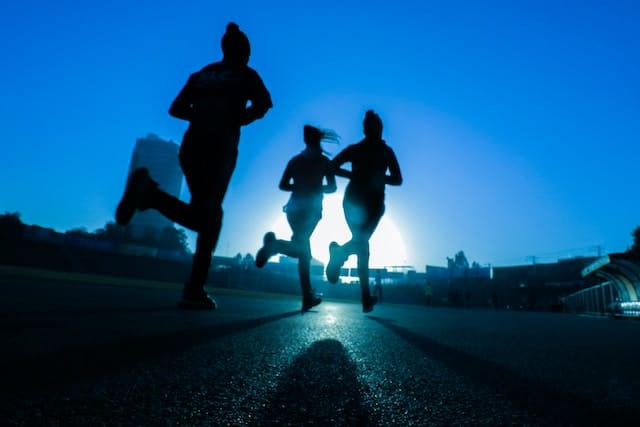Overcoming disability in sports: stories of inspiration

In the realm of sports, tales of perseverance, dedication, and triumph often emerge, capturing the human spirit in its purest form. For athletes with disabilities, these stories carry an additional layer of tenacity and courage. They redefine the essence of what it means to compete and to live vibrantly in the face of challenges that can, at first glance, seem insurmountable. As we explore the journeys of some remarkable individuals who have turned their disabilities into a source of strength, we not only uncover their legacies but also the limitless potential of the human will.
These athletes have not only excelled in their respective sports but have also become beacons of hope and inspiration for millions across the globe. From the Paralympic gold medalists to those who have overcome their limitations to compete alongside able-bodied peers, their stories serve as a testament to the resilience and indomitable spirit that define true champions.
A lire aussi : Extreme weather sports: the allure of nature’s challenges
The paralympic pioneers
The Paralympic Games stand as the pinnacle of achievement for athletes with disabilities. This international multi-sport event showcases the highest level of competition for disabled athletes, and its stories are ripe with human resolve and extraordinary talent.
Kyle maynard: an unconventional champion
Kyle Maynard was born with a rare condition known as congenital amputation, leaving him with arms that end at the elbows and legs near the knees. However, this did not deter him from pursuing a life filled with sporting achievements. With determination and an innovative approach to athletics, Maynard became the first quadruple amputee to ascend Mount Kilimanjaro without the aid of prosthetics, a story that resonates with the power of human will.
A découvrir également : Emerging sports tech: gadgets that are changing the game
Bethany hamilton: surfing beyond limits
Bethany Hamilton’s tale is one of horrifying adversity turned into an inspiring comeback. At the age of 13, she lost her left arm to a shark attack. Yet, her passion for surfing remained undiminished. With resilience and an unyielding spirit, Hamilton returned to the water, ultimately winning a national title. Her journey is a profound reminder that athletes with disabilities continue to shatter boundaries and redefine the possible.
Stories from the special olympics
The Special Olympics is another platform that spotlights athletes with intellectual and developmental disabilities. Here, sports serve as a means for empowerment and social inclusion, celebrating the athletic prowess and personal growth of participants.
The journey of loretta claiborne
Loretta Claiborne was born with intellectual disabilities and did not walk or talk until the age of four. Yet, she found her calling in running and went on to become one of the most celebrated Special Olympics athletes. Claiborne’s story is not just about her athletic achievements but also about her work as an advocate for disabled people, emphasizing the role of sports in transforming lives.
Athletes who transcend barriers
Some athletes with disabilities have found their place in the spotlight, competing at the highest levels alongside their able-bodied counterparts. Their stories are a celebration of inclusivity and the breaking down of barriers in the world of sports.
Jim abbott: a major league phenomenon
Jim Abbott was born without a right hand but went on to become a pitcher in Major League Baseball, a sport where such a disability would seem a conclusive barrier. Abbott’s career, highlighted by a no-hitter for the New York Yankees, is a vibrant chapter in sports history, showcasing that with adaptability and skill, limitations can be transformed into unique strengths.
Nick vujicic: a life without limits
Nick Vujicic, born without limbs, has become an influential motivational speaker and athlete, engaging in sports like swimming, diving, and surfing. His story is powerful and touches on a range of issues, including mental health and the importance of perseverance. Vujicic’s life serves as an embodiment of the fact that the term ‘disabled’ does not define what an individual can achieve.
The mental health angle in sports
The intersection between mental health and sports is increasingly recognized as critical for athletes’ overall well-being. Athletes with disabilities often face additional psychological challenges, yet their stories underscore the importance of mental fortitude.
The role of sports in mental health
Participation in sports has been shown to improve mental health by providing structure, community, and a sense of achievement. For disabled athletes, the psychological benefits of sports can be even more pronounced, offering a pathway to overcome social stigmatization and build self-esteem.
Conclusion: a celebration of human spirit
The stories of athletes with disabilities are not just about sports—they are about life, the human condition, and the unyielding desire to pursue one’s passions against all odds. These individuals have not only won medals or achieved athletic excellence; they have fundamentally altered perceptions of disability and ability. They have shown that with the right mindset, support, and dedication, the term ‘disability’ can be re-envisioned as ‘different ability.’
From the Paralympics to the Special Olympics, from Major League Baseball to motivational speaking circuits, these athletes have carved out spaces for themselves, but more importantly, they have paved the way for others who face similar challenges. Their contributions extend beyond personal victories; they have inspired countless others to view their disabilities not as hindrances but as unique attributes that contribute to a diverse and vibrant human tapestry.
As we reflect on these extraordinary journeys, it becomes clear that sports can serve as a powerful platform for challenging stereotypes, fostering inclusivity, and celebrating the indomitable spirit that lies within each of us. When the world witnesses disabled athletes surmount obstacles and triumph, the message is loud and clear: with passion, resilience, and courage, any barrier can be overcome. These stories are not just about overcoming disability in sports; they are stories of inspiration that resonate with us all, regardless of our circumstances. They remind us that every time we witness such feats, we are witnessing the incredible capacity of the human spirit to prevail.
